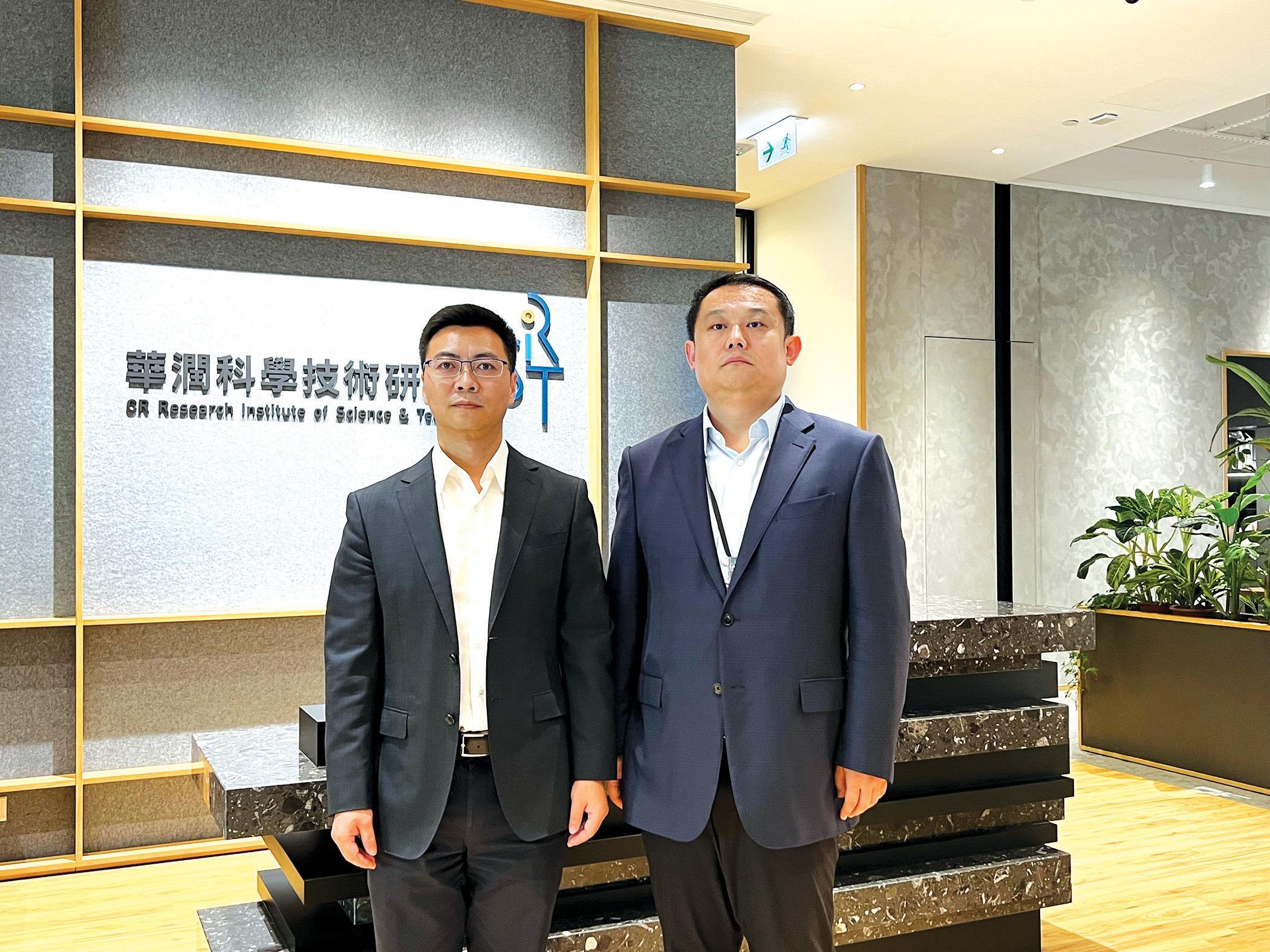 Zhi Zhe (right) and Feng Kai say China Resources Enterprise will advance the development of science and technology in the GBA by promoting integration between Hong Kong and the Chinese mainland. (OASIS HU / CHINA DAILY)
Zhi Zhe (right) and Feng Kai say China Resources Enterprise will advance the development of science and technology in the GBA by promoting integration between Hong Kong and the Chinese mainland. (OASIS HU / CHINA DAILY)
China Resources Enterprise and its research institute in Hong Kong aim to integrate the resources of the Guangdong-Hong Kong-Macao Greater Bay Area to advance the development of science and technology in the region.
This integration will target research and development, industrialization of research results, and the nurturing of scientific talent, Zhi Zhe and Feng Kai, vice-presidents of China Resources Enterprise said at a news conference on Wednesday.
CRE is one of the first State-owned companies listed in Hong Kong. It is also the first listed company of China Resources Group, a conglomerate with varied businesses in the Chinese mainland and the Hong Kong Special Administrative Region.
In June 2019, it established the China Resources Research Institute of Science and Technology in Hong Kong Science Park to carry out scientific and technological R&D, and technology commercialization.
As for R&D, the institute will collaborate with different universities in Hong Kong to leverage their respective strengths, said Zhi, who is also executive vice-dean of CR Research Institute of Science and Technology.
For instance, in May, CRE and Hong Kong Baptist University signed a memorandum of understanding to establish the HKBU-CRE Joint Innovation Centre on Smart Chinese Medicine. This collaboration will enable CRE to work with HKBU, which is renowned for its Chinese medicine studies, to promote the modernization and internationalization of traditional Chinese medicine.
The institute has also signed agreements with the Chinese University of Hong Kong and the City University of Hong Kong in May on future cooperation in space science. Additionally, it has established a joint research institute with the Hong Kong Polytechnic University to conduct research on carbon neutrality and sustainability-driven projects.
The institute is engaged in other collaborative projects with various universities in Hong Kong, Zhi said.
As for the integration in industrialization of research results, the institute is actively working to establish a cooperative model where R&D is carried out in Hong Kong and transformation of R&D results takes places in the mainland, Zhi said.
In January, the institute partnered with Roborn Technology Ltd, a Hong Kong technology company specializing in sensors and artificial intelligence robots, to establish a research center for the elderly care. One of the primary projects in this center is to develop intelligent robots that can train elderly individuals and help them regain their vitality.
In the future, the institute aims to collaborate with mainland companies to broadly apply the R&D results of this project to nursing homes and other areas.
This effort will not only ease the pressure of resource constraints on the mainland’s elderly care system but also facilitate the rapid transformation and marketing of Hong Kong’s research results on the mainland, Zhi said.
Zhi noted that Hong Kong and Shenzhen have made significant strides in biomedical innovations over the past decade, with Hong Kong excelling in basic research and Shenzhen possessing a complete industrial chain.
Zhi said he believes that the Hong Kong authorities can better leverage these advantages and transform the Lok Ma Chau Loop into a globally competitive bio-industry center.
To achieve this goal, Zhi called on the SAR government to explore more supportive policies to facilitate the flow of biomaterials and devices between Hong Kong and Shenzhen, promoting the landing of R&D results.
Currently, the institute is in negotiations with an institute in Shenzhen to establish a joint R&D center to conduct joint R&D and results transformation, Zhi revealed.
Regarding talent, earlier this year, the institute discussed jointly constructing a base for tech talent incubation and exchange with a city in the Greater Bay Area. The aim is to establish the base within this year, Zhi said.
Additionally, CR Enterprise will launch a talent program to enhance the science and technology skills of Hong Kong’s youth.
According to Zhi, the program will provide students with technology skills training, workshops, internships, and employment opportunities, thereby attracting and retaining talent for Hong Kong.
Zhi said that the institute will collaborate with universities in Hong Kong to nurture research talent. For example, it will help refine disciplines in universities and add study modules that correspond to research positions in CRE. CRE and CityU are already collaborating in this area, Zhi said.
Contact the writer at oasishu@chinadailyhk.com


